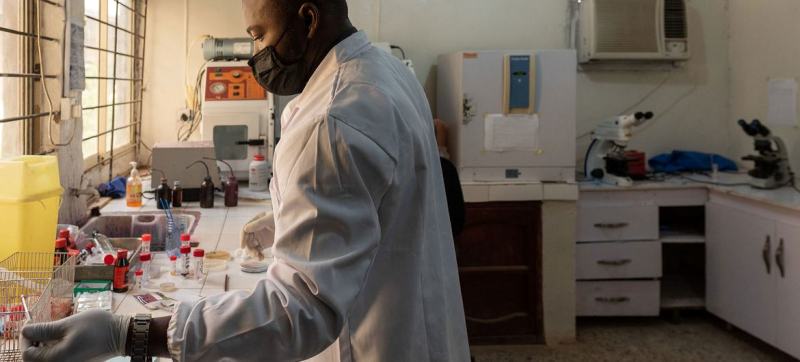 Vaccines
Vaccines
WHO's new study lists 17 pathogens as top priorities for developing new vaccine
The World Health Organization has listed 17 pathogens as a priority to develop a new vaccine.
The WHO-study is the first global effort to systematically prioritize endemic pathogens based on their regional and global health impact.
It reconfirms longstanding priorities for vaccine research and development (R&D), including for HIV, malaria, and tuberculosis – three diseases that collectively cause nearly 2.5 million deaths each year.
Attention is also given to pathogens such as Group A streptococcus, which causes severe infections and contributes to 280,000 deaths from rheumatic heart disease, mainly in lower-income countries.
Another new priority is Klebsiella pneumoniae — a bacteria that was associated with 790,000 deaths in 2019 and is responsible for 40 per cent of neonatal deaths due to blood infection (sepsis) in low-income countries.
Focus on needs, not profit
The new study supports the goal of ensuring that everyone, everywhere, can benefit from vaccines that provide protection against serious diseases.
It aims to shift the focus in vaccine development away from commercial returns towards regional and global health needs, said WHO’s Dr. Mateusz Hasso-Agopsowicz, who works in vaccine research.
He explained that in the past, vaccine R&D typically was influenced by profitability. As a result, diseases that severely affect low-income regions received little attention.
“We hope this represents a critical shift where we want to change the focus from commercial perspective profitability of new vaccines towards the actual health burden so that the new vaccine research and development is driven by health burden and not just commercial opportunities,” he said, speaking from Poland.
Advice from experts
To carry out the study, WHO asked international and regional experts what they think is important when prioritizing pathogens for vaccines R&D. Criteria included deaths, disease and socioeconomic impact, or antimicrobial resistance.
“We had asked experts that have expertise in pathogen epidemiology, clinicians, paediatricians, vaccine experts from all of the WHO regions, so that to ensure that the list and the results that we produce, they really reflect the needs of diverse populations worldwide,” said Dr. Hasso-Agopsowicz.
Analysis of those preferences, combined with regional data for each pathogen, resulted in top 10 priority pathogens for each of WHO’s six regions globally.
The regional lists where then consolidated to form the global list, resulting in the 17 priority endemic pathogens for which new vaccines are urgently needed.
To advance vaccine R&D, WHO has categorized each pathogen based on the stage of vaccine development and the technical challenges involved in creating effective vaccines.
Dr. Hasso-Agopsowicz said the study is expected to guide future vaccine R&D investments, including by funders, researchers and vaccine developers, but also policymakers as they “can decide whether to introduce these vaccines into immunization programmes.”
Support Our Journalism
We cannot do without you.. your contribution supports unbiased journalism
IBNS is not driven by any ism- not wokeism, not racism, not skewed secularism, not hyper right-wing or left liberal ideals, nor by any hardline religious beliefs or hyper nationalism. We want to serve you good old objective news, as they are. We do not judge or preach. We let people decide for themselves. We only try to present factual and well-sourced news.






